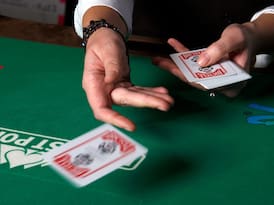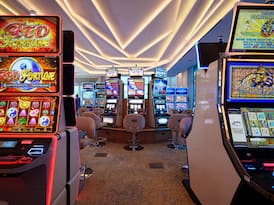It can be hard for new (and even seasoned) players to navigate the world of online casinos. It’s a jungle out there! And everybody could use a little help carving a path through all those options online. That’s where we come in. Honey Monkey Pineapple is the only site where you’ll find the most reliable and straight-up honest reviews of the top online casino sites, games and even offers to help get you started.
We’re here to help you find the best games that are best for you, your budget and your tastes – and ensure your entertainment wagering experience is responsible and reliable. We play the games we review and love the games we love. We’re different from the other guys because we call things like they are and won’t ever promote a game we don’t think is great, or a game we think is out to game you. Not ever.





:quality(70)/cloudfront-eu-central-1.images.arcpublishing.com/xlmedia/2S77L2OB3VCFRJSZMAQSA6DIVQ.jpg)
:quality(70)/cloudfront-eu-central-1.images.arcpublishing.com/xlmedia/7YIALSHIDJB6JK6DQPVOLU2GPE.jpg)
:quality(70)/cloudfront-eu-central-1.images.arcpublishing.com/xlmedia/M35QYIN475DZXOKCPMBPD7JKKU.jpg)
:quality(70)/cloudfront-eu-central-1.images.arcpublishing.com/xlmedia/ID7ZAXWTW5GB3GHDNCDFBT6FME.png)
:quality(70)/cloudfront-eu-central-1.images.arcpublishing.com/xlmedia/W4OKWDTAXRCQ3BOZMB4CLSH7IA.png)
:quality(70)/cloudfront-eu-central-1.images.arcpublishing.com/xlmedia/MGDFN4BQNBCJZM6IG3JEYGYMSE.png)




